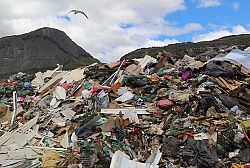

In July 2023, the European Commission introduced a proposal which, if adopted, will amend Directive 2008/98/EC on waste (the Waste Framework Directive) to address one of the biggest sources of resource inefficiency and waste - food and clothing sectors.
The general objectives of the proposed Directive are to reduce the environmental and climate impacts and improve the environment and public health associated with food waste generation and textiles waste management as well as the production chain. These measures are also intended to help the EU achieve net-zero greenhouse gas emissions by 2050 through improved resource efficiency and reduction of waste.
Textile waste
Despite waste prevention being at the top of the Waste Hierarchy under the Waste Framework Directive, the waste from the textile industry continues to rise and is exacerbated by the "fast fashion" trend where clothes collections are introduced on the market very often with low-priced products of poor quality that encourage customers to shop impulsively and encourage purchasing of large quantities of clothing, which in line increases the amount of textile waste produced.
Currently, the vast majority of post-consumer textiles end up in mixed-waste stream, destined for landfill or incinerator. Despite a separate collection of textile waste being introduced in 2025 by the Waste Framework Directive, it is expected that Member States will not be ready to handle the large amounts of such separate collection.
This proposed Directive, therefore, aims to amend the Waste Framework Directive to include a requirement for the producers of textiles to be responsible for the full life cycle of their products (Extended Producer Responsibility for textiles) and to improve the sustainability and environmental impact of their products across the EU.
Food waste
It was found that food waste is the largest source of inefficiency in the agri-food chain in the EU, resulting in adverse environmental and climate impacts, as well as wasting important resources, such as water and soil, with no benefit to human nutrition. Food that has been processed, transported, cooked and then wasted at the consumption stages has a higher environmental impact than unprocessed food products that are lost at the farm.
The proposed changes to the Waste Framework Directive involve introducing requirements on Member States to prevent the generation of food waste in primary production, processing and manufacturing, retail and other distribution centres as well as in households and in restaurants and food service establishments by:
The amendments also include a requirement to prepare and adapt food waste prevention programmes within two years of this amending Directive coming into force for all Member States.
For more information on this subject, see: